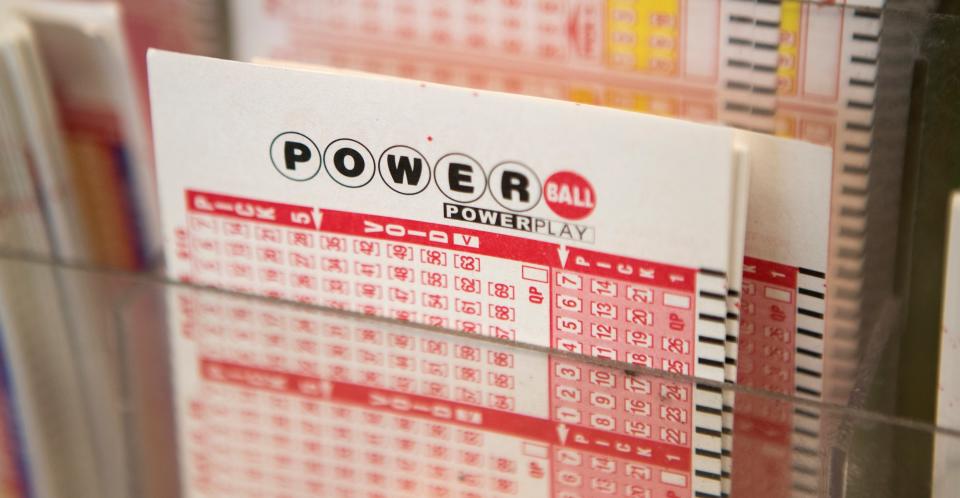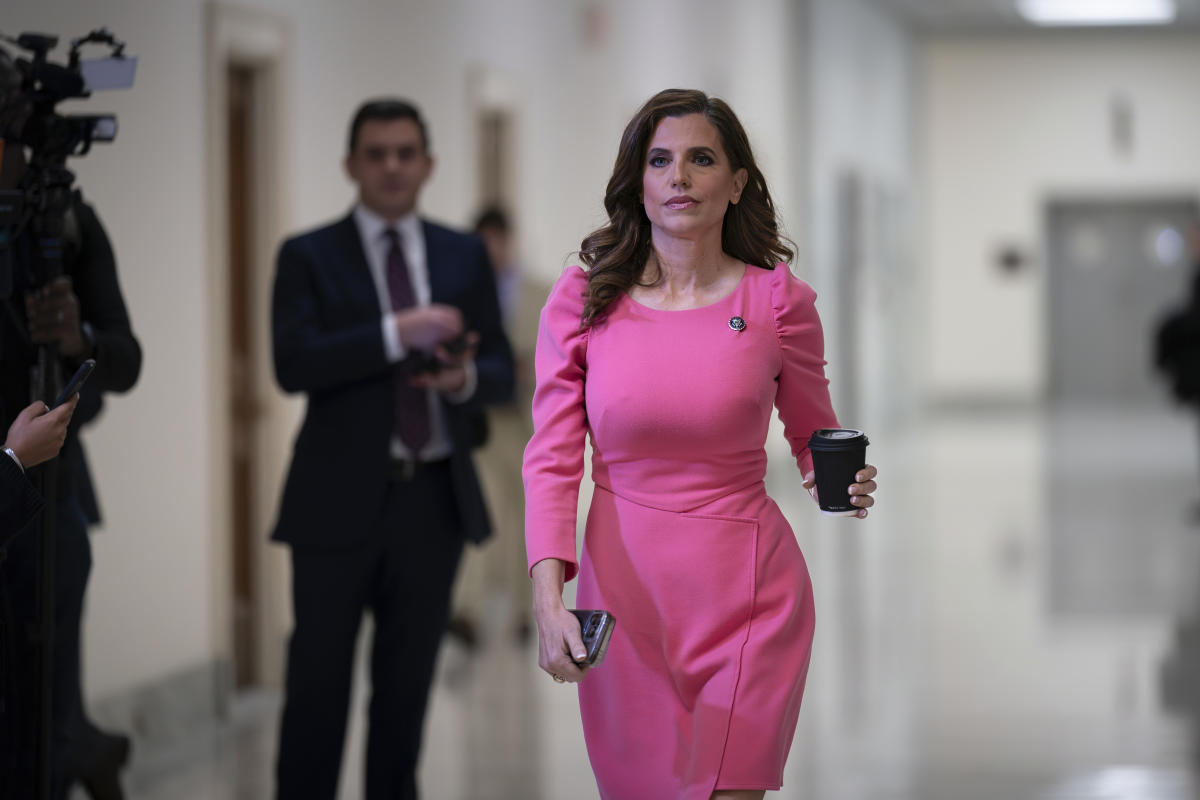Alyssa Burks
In 2021, Alyssa Burks, now 33, became perpetually fatigued, developed heartburn, and started having trouble swallowing. Tests later revealed she had stage-four stomach (a.k.a. gastric) cancer. Now, Alyssa shares what it’s like to fight this type of cancer on her TikTok, from before her diagnosis to her current treatment plan. Here’s her story, as told to health writer Julia Ries.
The very first cancer symptom I noticed was that, all of a sudden, I felt extremely exhausted all the time. This started during the pandemic in 2021. I went to work, came home, and went right to sleep. I was putting in extra hours at my job, so my friends and family thought I was just stressed out or overworked. My fatigue was affecting my relationship. My spouse was like, “This isn’t working. You don’t want to do anything.” I told him something was wrong—I’d never felt so low-energy in my entire life.
I went to my primary care physician and told her how tired I felt. She, too, asked if I was unusually stressed. I let her know I typically handle stress well—this seemed different. She ordered a full blood workup and my results came back normal. I also underwent a sleep apnea test, because she thought I might not be getting adequate sleep, and that came back negative.
My resting heart rate started randomly spiking. I was sitting on the couch with a friend, and my Apple Watch alerted me that my heart rate suddenly shot over 100 beats per minute. (It was normally between 60 and 70.) It didn’t make sense—it happened when I felt totally relaxed. I went back to my doctor and told her about this. She didn’t run any additional testing, though she put me on a medication to slow down my heart rate.
I developed heartburn, which felt like a burning sensation in my chest all day, every day. It didn’t matter what I ate—it was constant. I googled my symptoms, but couldn’t find any answers. Thyroid issues run in my family, so I suspected maybe I had a problem with my thyroid, but I honestly had no idea what might be wrong. I went back to my physician, who told me the heartburn was probably related to my age and that I likely couldn’t handle certain foods, especially acidic ones, anymore—this didn’t make sense to me, especially because my heartburn occurred even with non-acidic foods. I was prescribed a medication that reduces stomach acid, which didn’t help. I still had heartburn, an elevated heart rate, and terrible exhaustion.
My doctor had me wear a heart monitor for two days to measure any irregular activity. That test didn’t reveal any issues, which my doctor suspected was because the medication was regulating my heartbeat. I decided to stop taking both medications to get a better look at what was going on, and I lost 15 pounds in two months. That was drastic and alarming, given that I’m four eleven, I wasn’t working out, and I wasn’t eating differently. I started having difficulty swallowing food and water. When I tried to drink, it felt like I was drowning.
I’d dealt with these symptoms for around two years, and things were only getting worse. My PCP was concerned about my weight loss and swallowing and suggested I see a gastroenterologist. Looking back, I don’t think it crossed my doctor’s mind that I could have gastric cancer because, while it’s becoming more prevalent, it’s still not common in young people. Up until this point, I was repeatedly told I was healthy—even though I didn’t feel healthy.
I saw a GI specialist in March 2023, and, from the start, she was very concerned. She said my symptoms weren’t normal, especially for someone my age. She ordered more blood work, a stool sample, and a CT scan, and scheduled an endoscopy and colonoscopy for May. When those tests came back normal, I was so frustrated—I was going to so many appointments, doing all of these tests, and paying a lot of money, but I wasn’t getting any answers. I wanted to cancel the upcoming endoscopy and colonoscopy because I thought it would be more of the same: expensive tests that didn’t help. I even started to believe that maybe my symptoms were related to stress—but my husband encouraged me to move forward with the procedures.
When I came to after my colonoscopy and endoscopy, my doctor told me they removed a polyp from my colon—he wasn’t concerned about that—and had also found serious inflammation where my esophagus met my stomach and took some biopsies. I asked if that’s what caused my difficulty swallowing, and he said, “Yes, that’s more than likely the case.” Then he took a deep breath and asked if cancer ran in my family. I thought, Whoa—that was a weird shift, and said, “No—not that I know of.”
He said he’d contact me when my results came in and sent me on my way. I tried to push the thought of cancer out of my mind—I didn’t want to put energy into worrying about it. Five days later, the doctor got in touch to go over my results. I called for my spouse, and he came over just as the doctor said I had cancer, along with H. pylori, a common bacterial infection that affects the stomach lining and can cause ulcers, gastritis, and, more rarely, cancer.
It was so shocking that I didn’t have much of a reaction. My mind was zeroed in on what was next: “Where do we go from here?” First, I needed to take medication to treat the H. pylori, then get another CT scan—this time of my chest. I also needed to have part of my stomach surgically removed and begin chemotherapy. It took a couple weeks to get anywhere: I kept calling my doctor’s office for updates, but the receptionist told me he was busy and that he’d get to my case in a few days. I was so annoyed, like, “Okay, more delays.”
In the meantime, I researched support groups and joined one on Facebook called Stomach Cancer Sisters, which was so welcoming and engaging. I shared my biopsy results, and one of the girls had the same exact type of cancer. She explained to me that it’s not a typical cancer that causes tumors, but more like a “pancake batter” that spreads.
Soon after that, I got connected with an oncology team. My new surgeon told me I needed a laparoscopy to take a closer look at my abdomen, since the type of cancer I have doesn’t show up on scans. After that, I needed to do four rounds of chemotherapy, get surgery to remove my stomach, then do four more rounds.
I was in a work meeting when my doctor called and told me the laparoscopy revealed the cancer spread to my peritoneum, the membrane that lines the abdominal cavity. He explained that they don’t like to see cancer in this area, because there isn’t a cure for it. I was diagnosed with stage IV gastric cancer.
I pulled myself together, finished the meeting, and went home and cried. My family immediately came over and sat with me as we all quietly processed the diagnosis. (That hit me the hardest.) Up until this point, I was annoyed and frustrated, but this rocked my world.
After receiving this news, I really struggled emotionally. I wasn’t sleeping well. I tried to not think about cancer, but I couldn’t escape my thoughts: It’s stage IV. I told my medical team I can usually deal with stress just fine, but this was overwhelming. I was prescribed anti-anxiety medication and started seeing a therapist, which helped me cope with everything.
Because the cancer was so invasive, I was no longer a candidate for stomach surgery and would need to be on chemo for the rest of my life. I agreed to take a chemo medication called FOLFOX, which is administered via a chest port, but I told my doctors, “I understand your goal is to prolong my life, but my goal is to have surgery, and I will do whatever you need me to do to get to that point.”
The treatment went well, and four months in I learned a trial opened up specifically geared toward the type of cancer and spread I had. To take part in it I’d receive another chemo port—this time, in my stomach—then have surgery to remove my entire stomach, followed by three more rounds of chemo.
I thought, Great, this is my opportunity to have the surgery I need. Sign me up. My oncologist reminded me that this wasn’t a guaranteed cure—even if the trial worked, there was a high chance of recurrence. I was fine with that: I wanted to do everything I could to fight the cancer.
In August 2023, a CT scan revealed I had a cyst on an ovary, but it wasn’t clear if it was cancer. In October, as I got ready to start the trial, I had a follow-up scan to ensure the cancer hadn’t spread—if it had, I would no longer qualify for the trial. The ovarian cyst had grown. I was terrified: Here was yet another thing to get over.
Fortunately, I was allowed to proceed with the trial, since the imaging results were inconclusive. But my surgeon recommended that I get my ovaries removed at the same time as my stomach, just to be safe, since this type of cancer is known to spread there.
The surgeon I met with was reluctant. She said I had a bad prognosis, and that removing my ovaries—which, to her, looked healthy—would eliminate my ability to have kids. I thought, I don’t take this decision lightly, but I feel like this is the best thing to do to prolong my life. I figured, I can handle menopause at the age of 33—I’m okay with that.
On January 30, I had my ovaries, fallopian tubes, and entire stomach surgically removed. It was a success, but it turned out the growth on my ovaries was, in fact, cancerous. The surgeon apologized to my husband at the hospital, but never communicated this news to me. I think she was embarrassed.
Shortly after, my other surgeon contacted me to discuss the pathology report. The cancer, he said, was “very angry”—it expanded throughout my stomach and climbed further into my esophagus. It was detected in 27 lymph nodes, which indicated it metastasized to other parts of my body. I wasn’t cancer-free at all—instead, I was dealing with an extremely aggressive form.
I was in shock, but focused on what was next. I talked to my support group, and they helped me jot down follow-up questions. When I met with my doctor again, he said it seemed like the initial chemo did nothing and he wasn’t sure if it made sense for me to take more. But my medical team decided it was best for me to finish the trial, so I did the final three more rounds, which took about a month and a half. This time, it caused intense burning and excruciating pain in my abdomen, I think because I was still recovering.
After surgery, I had to relearn how to eat. I was such a foodie before I was diagnosed with cancer, but now I have to be so mindful of what—and how—I eat. My esophagus is directly connected to my intestines—it’s a straight line. I don’t have a stomach, which would tell me that I’m hungry or full, so I have to be very careful to not consume too much or too little, making it much harder to maintain my weight. I have to chew very thoroughly to help my intestines digest food and get regular B12 injections and iron infusions, since it’s harder for my body to absorb nutrients. It’s been a massive change, and I’m still getting used to it.
On April 11, I had a follow-up endoscopy to examine how the cancer responded to the trial. The doctors took one biopsy and said that everything looked good. But the surgeon didn’t get good margins during my surgery, which suggests there are microscopic cancer cells remaining in my esophagus. I also did a Signatera test to see if the DNA from my tumor was also in my blood. I tested positive, which indicates I still have cancer, but it’s unclear where in my body it is.
Currently, I’m in this strange position where I know I still have cancer, but it’s not being treated. It feels weird to just leave it alone. I’m going to get a full-body scan to see where it might have spread in my body, but imaging tests aren’t great at picking up my type of cancer. Still, I’m hoping it will give me some answers so that I can press my team for other treatment before it gets worse.
I sometimes wish I asked my doctor about cancer back when this all started—maybe they would have ordered the endoscopy sooner to get me an earlier diagnosis. Throughout this entire journey, I’ve had to fight for my medical team to run more tests—some of which they weren’t even aware of. But I did my research, talked to my support group, and explained to the doctors I saw how different tests might help. I’ve always been the type to embrace life, but I’m also a planner and very focused on what’s next. Right now, I feel so lucky to have been paired up with an amazing team that helped me get involved in the trial and continues to listen to me. I’m so blessed to be here.
Related:
Originally Appeared on SELF
Signup bonus from





